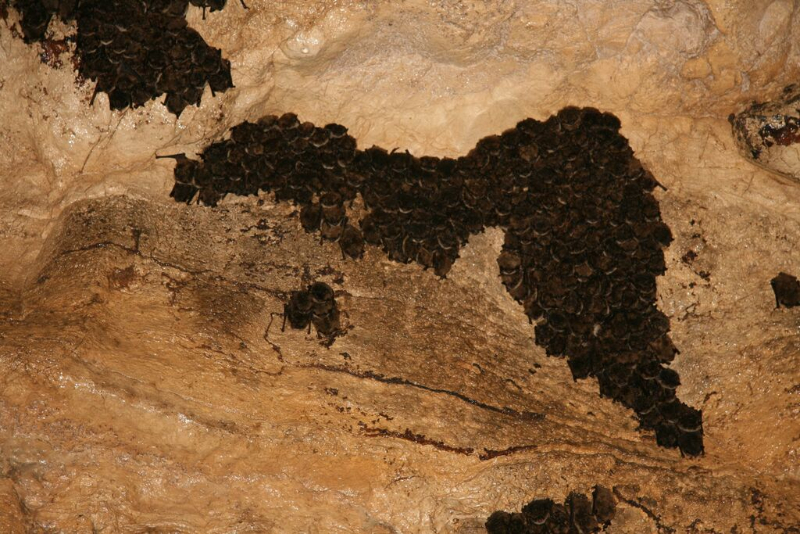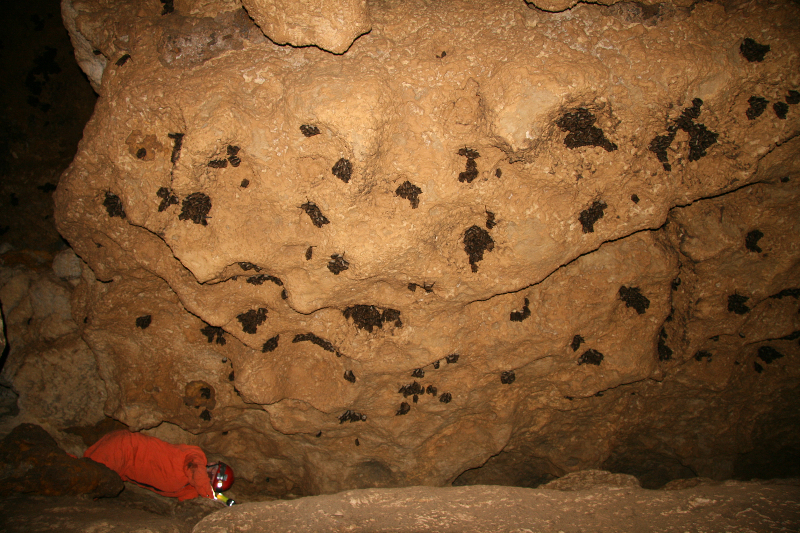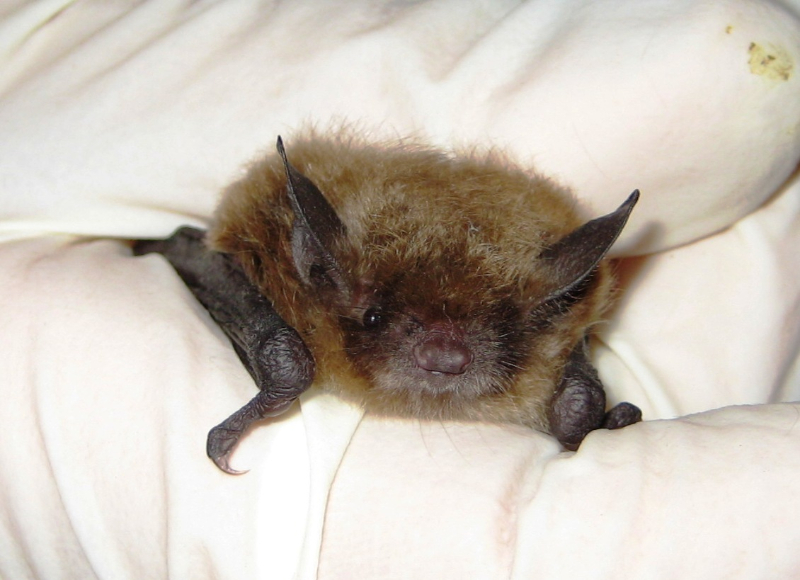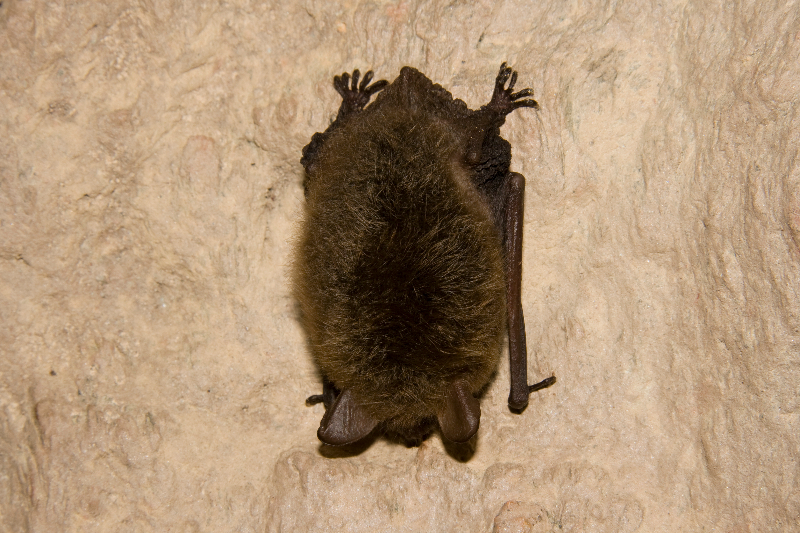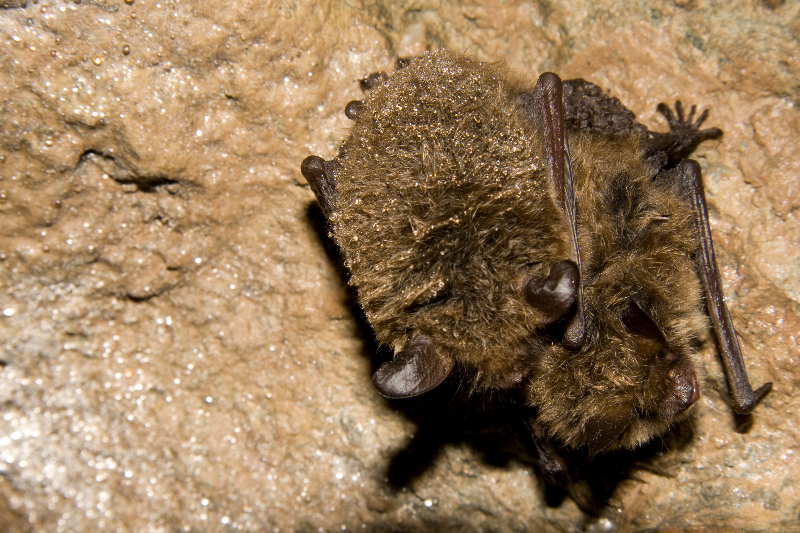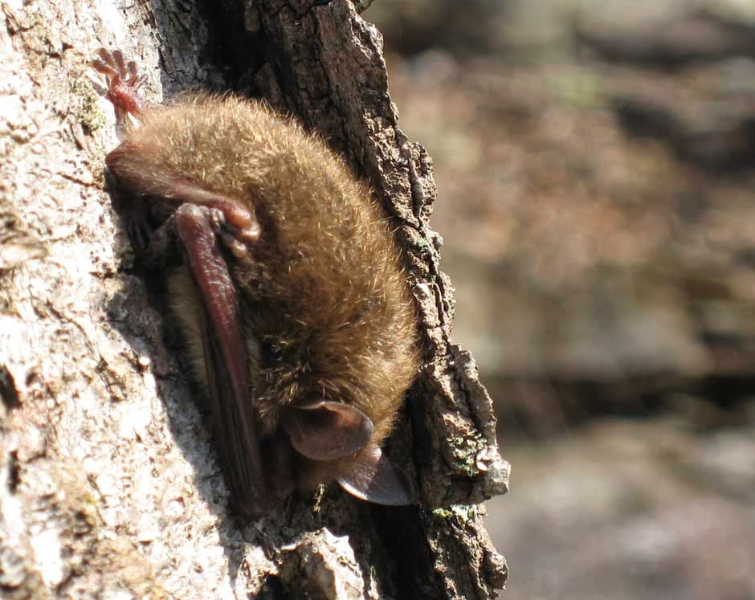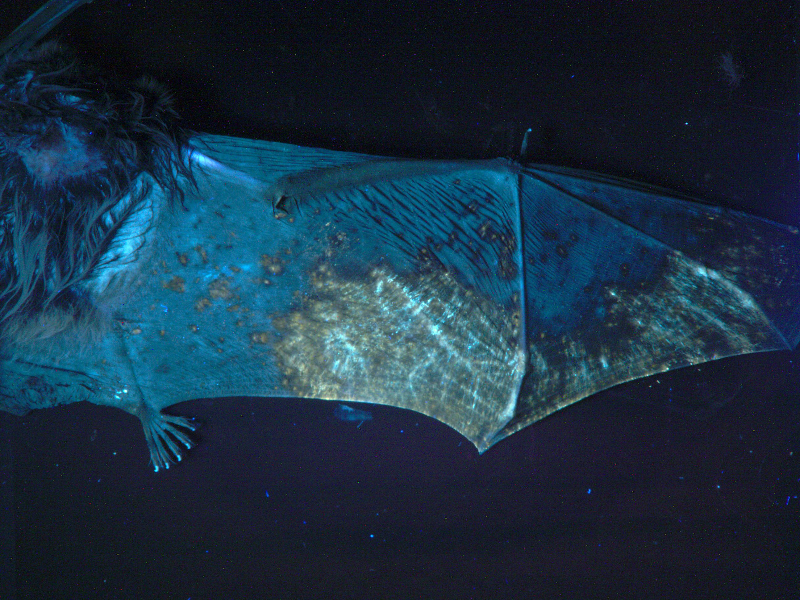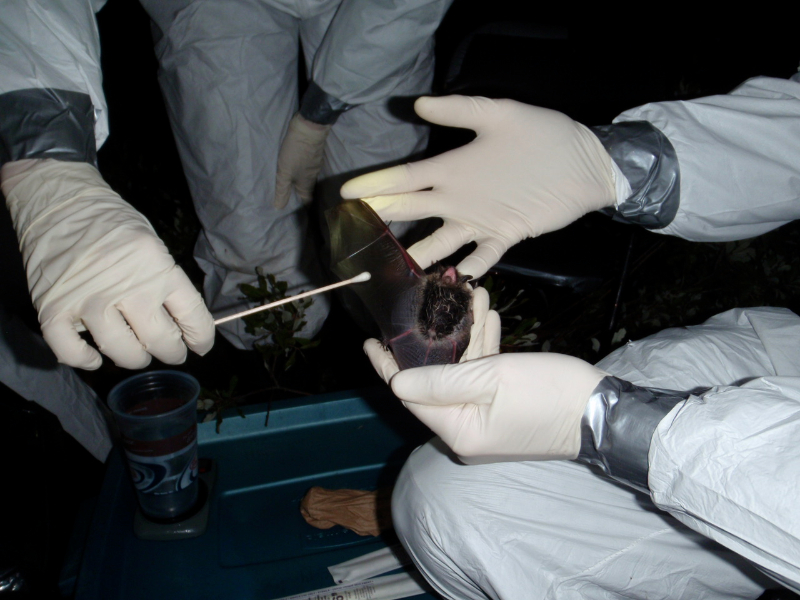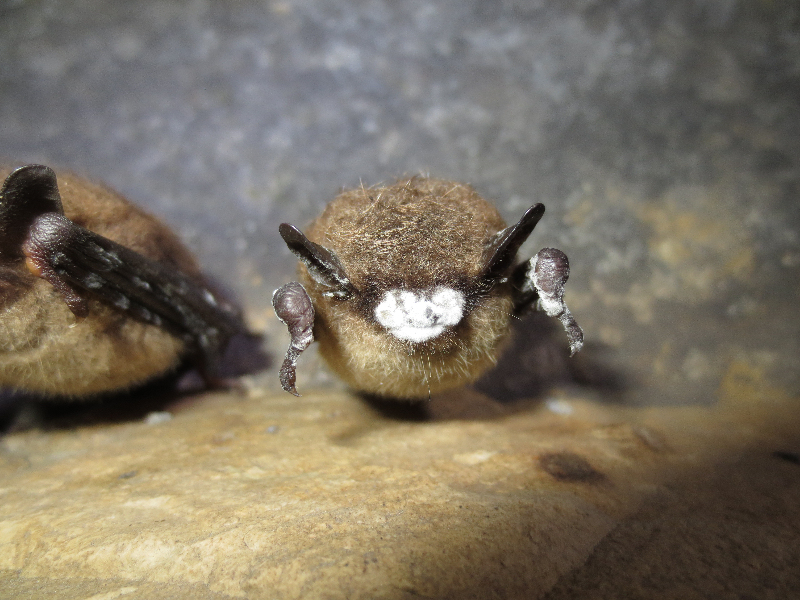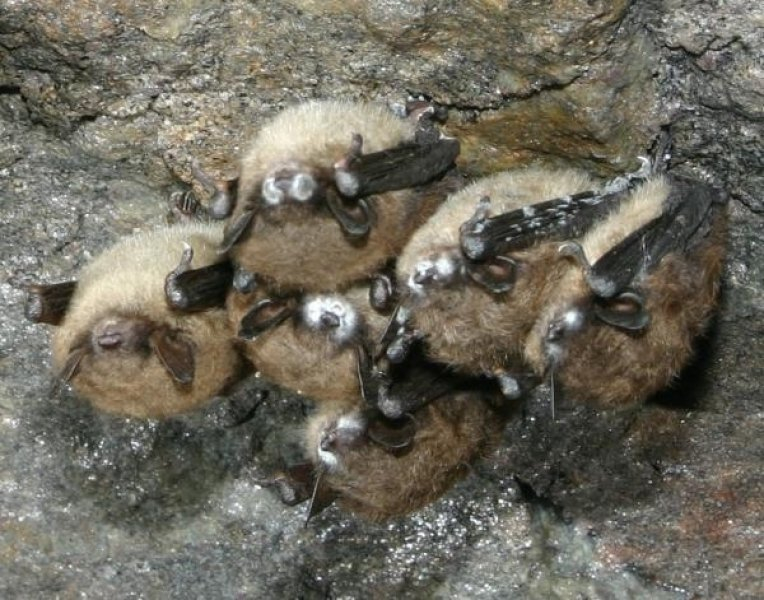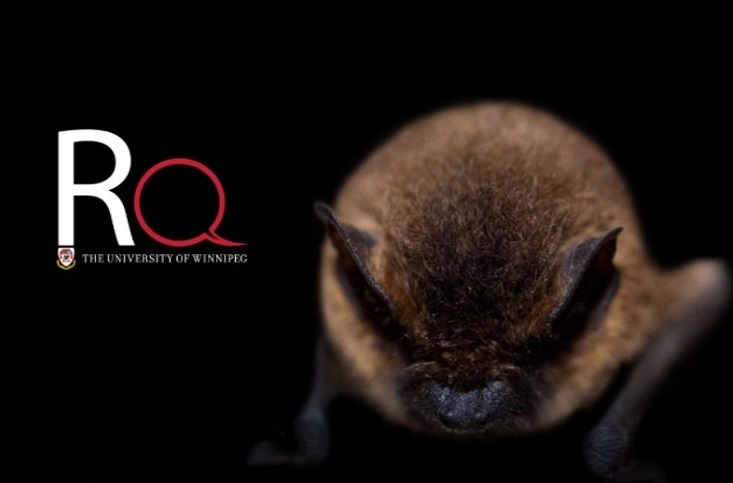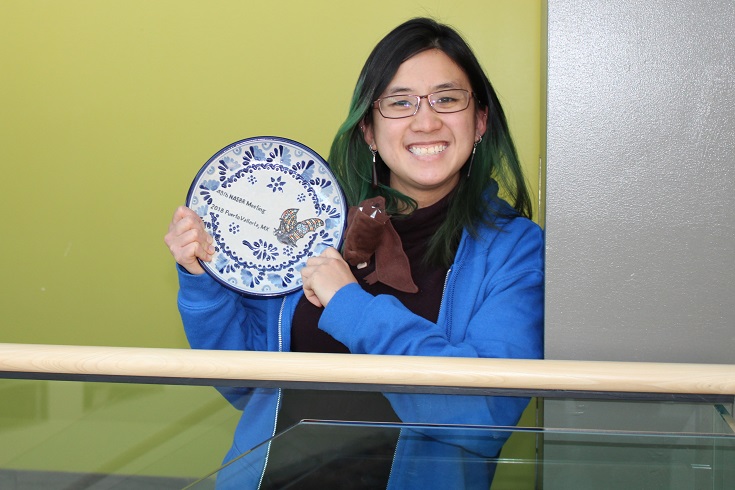Bats play a crucial role in controlling insect pests of agriculture and forests, but are threatened by an invasive disease called white-nose syndrome (WNS). The UWinnipeg Bat Lab* was awarded $148,406.80, over three years, from the Species at Risk Fund of Ontario to support innovative bat conservation research to help combat WNS. This money in part will support Neighbourhood Bat Watch, a citizen science project that encourages the general public to participate in monitoring bat populations.
WNS is a disease caused by a fungus that was accidentally introduced from Europe to a cave in New York State ten years ago. WNS causes bats to warm up too often during winter hibernation which exhausts their fat reserves before spring. Millions of bats have been killed so far and it is spreading across North America at an astonishing rate. As of 2016, the fungus had moved further west reaching the Kenora area. The Government of Canada has listed three bat species as federally endangered because of WNS, and warned that the disease could lead to major economic and ecological costs ranging from reduced crop yields to additional insecticide use.
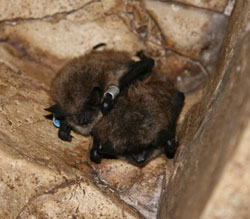
photo: brown bats, photo supplied
The UWinnipeg Bat Lab is using the summer colonies identified on the The Neighbourhood Bat Watch website to deploy innovative conservation tools to help bats recover from white-nose syndrome. Although winter mortality from white-nose syndrome is high, a small proportion of bats with white-nose syndrome survive the winter. White-nose syndrome survivors may be able to pass on “survival traits” to their offspring if they can reproduce in spring. Bat pups need very warm temperatures to grow so, during summer, mother bats select the warmest possible roosts and cuddle with each other to stay warm. The Bat Lab is testing whether artificially heated bat houses could help mother bats reproduce and pass on traits that allow bats to survive white-nose syndrome.
Batwatch started in Quebec by the Government of Quebec (Ministère des Forêts, de la Faune et des Parcs (MFFP), and the Quebec Centre for Biodiversity. The UWinnipeg Bat Lab expanded this citizen science initiative to Ontario and Manitoba.
*Join the ‘Neighbourhood Bat Watch’ team. The UWinnipeg Bat Lab is recruiting citizen ‘scientists’ from across Manitoba and Ontario to join the Neighbourhood Bat Watch and report the locations and sizes of summer colonies of bats, contributing to a critical first step in the conservation of bats in North America. Citizens can visit the Neighbourhood Batwatch website at to learn information about bats in central Canada, register a colony on their property, and learn how to enter their own scientific data.

